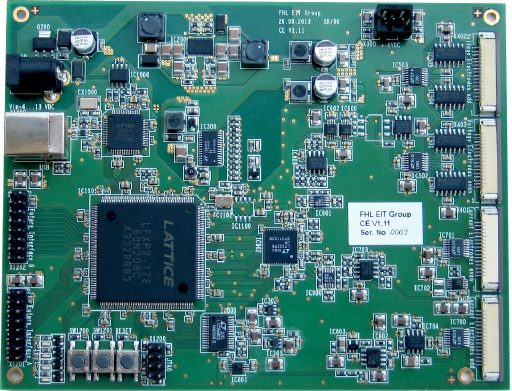The PCB (Printed Circuit Board) industry is a complex field with a range of technical terms and jargon. These are just some of the many terms used in the PCB industry. Understanding terms can help you communicate more effectively with manufacturers and designers, and can help you make informed decisions about your PCB projects.
List of PCB industry nouns

- Trace: The copper wire that connects two points on a PCB.
- Via: A plated hole in a PCB that allows a signal or power to pass through different layers.
- Pad: A copper-plated hole on a PCB that provides an electrical connection between a component and a trace.
- Solder mask: A protective coating applied over the PCB to prevent short circuits and to provide insulation.
- Silkscreen: A layer of ink printed on a PCB to label the components, connectors, and other features.
- Surface mount technology (SMT): A method of mounting electronic components directly onto the surface of a PCB.
- Through-hole technology: A method of mounting electronic components by inserting their leads into holes drilled in the PCB.
- Gerber file: A set of files that define the PCB layout, including the trace, pad, and component locations.
- DFM (Design for Manufacturing): A process that ensures that the PCB design is optimized for efficient and cost-effective manufacturing.
- PCB stackup: The arrangement of the layers of a PCB, including the number of layers and the types of materials used.
- Blind via: A via that connects an outer layer of a PCB to an inner layer without passing through all of the layers.
- Buried via: A via that connects two inner layers of a PCB without passing through the outer layers.
- Copper weight: The thickness of the copper used on a PCB, measured in ounces per square foot (oz/sqft).
- IPC (Institute of Printed Circuits): A trade organization that sets industry standards for PCB design and manufacturing.
- RoHS (Restriction of Hazardous Substances): A directive that restricts the use of certain hazardous materials in the production of electronic products.
Why learn PCB industry terms
Learning PCB industry terms can be beneficial in several ways, especially if you are involved in the electronics industry. Here are a few reasons why learning PCB industry terms is important:
Effective communication: Knowing industry terms can help you communicate effectively with PCB manufacturers, designers, and other professionals in the industry. This can help you avoid misunderstandings and ensure that everyone is on the same page.
Better understanding: Understanding industry terms can help you better understand the PCB manufacturing process, the design requirements, and the technical specifications. This can help you make informed decisions about your PCB projects.
Cost-effective solutions: Knowing industry terms can help you work with manufacturers to find cost-effective solutions to your PCB needs. This can help you save money and time by ensuring that you get the right PCBs at the right price.
Improved troubleshooting: Knowing industry terms can help you troubleshoot PCB problems more effectively. This can help you identify and fix issues quickly, reducing downtime and minimizing costs.
Compliance requirements: Knowing industry terms can help you ensure that your PCBA projects comply with industry standards and regulations, such as RoHS compliance.
In summary, learning PCB industry terms can help you communicate effectively, better understand the manufacturing process, find cost-effective solutions, troubleshoot problems, and ensure compliance with industry standards.
